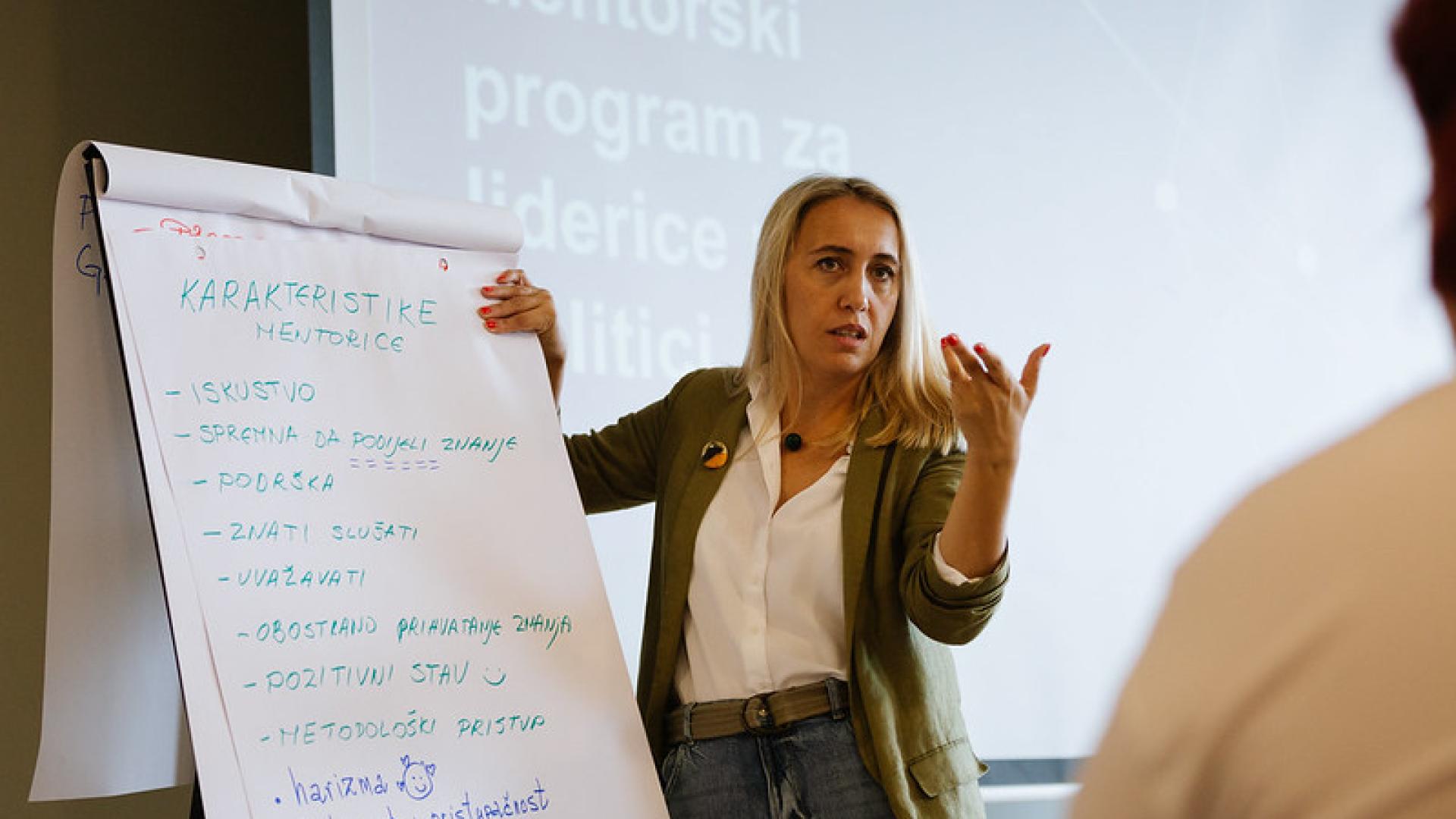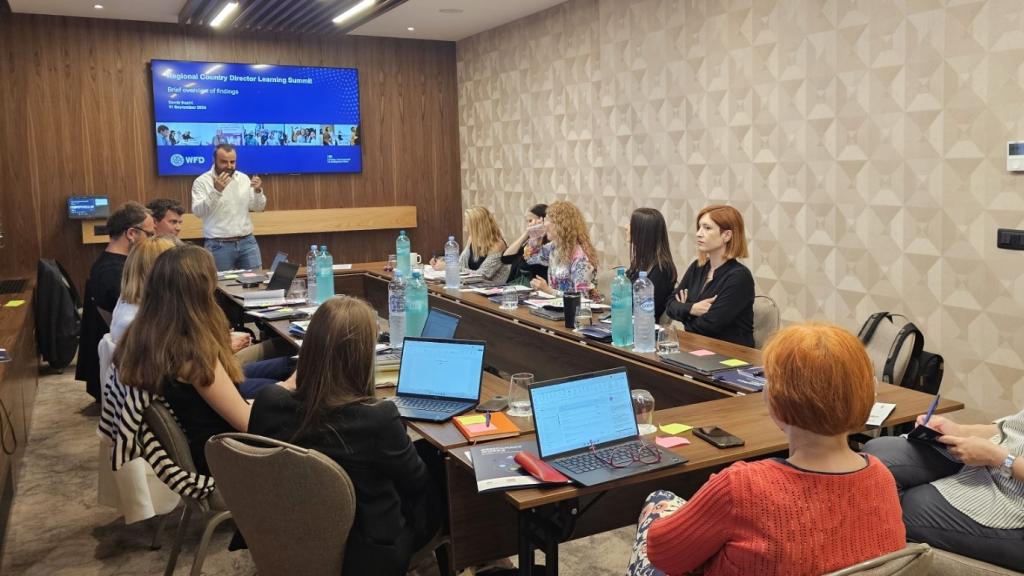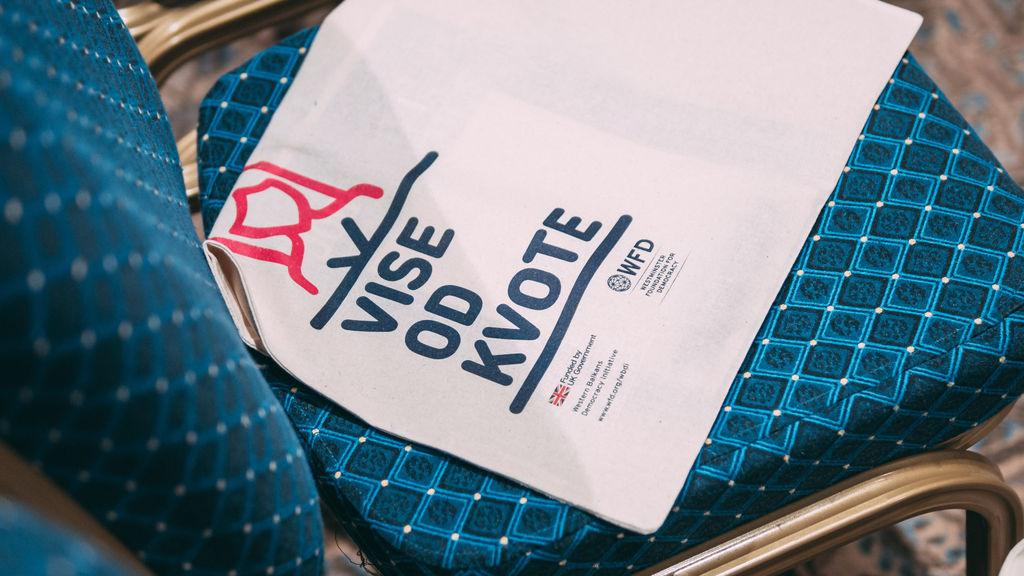Supporting women politicians tackling gender-based violence in Bosnia and Herzegovina

Equal opportunities and equal treatment are key to creating a society free from gender-based violence. WFD’s programmes aim to achieve this by supporting women’s political participation, representation, and entrepreneurship. With more women taking on lead roles in legislative and executive bodies it is easier to make way for legal acts, not to mention a change of mindset in communities where women are significantly underrepresented in decision-making.
With the ongoing COVID-19 pandemic causing a global lockdown, women and girls who are subject to physical, sexual and mental abuse need additional support.
During the annual international 16 days of activism against gender-based violence campaign, we are reminded of the importance of inclusive democratic institutions and closing the gender gap in politics. WFD Bosnia and Herzegovina (BiH) has a programme dedicated to increasing women’s political participation and fighting gender discrimination. Since the beginning of the COVID-19 pandemic, WFD BiH adapted its More than a Quota programme into a series of webinars and online discussions covering topics such as domestic violence and violence against women in politics as a hidden pandemic.
Working towards a more just legal system, WFD’s office also developed a policy proposal that aims to end gender discrimination and sexual harassment in all legislative bodies in Bosnia and Herzegovina.
The women’s mentorship programme conducted in BiH influenced mentees to take part in civil activism and policymaking in their local communities. With the support of their mentors – female politicians – they organised a series of campaigns and events. Last year’s 16 days campaign was marked in East Sarajevo with a panel discussion organised by a participant of the programme, Ms Danijela Cetkovic Senic. Having experienced domestic violence herself, Danijela advocates for legal measures to tackle it and aims to inform women of their legal options. She fights gender-based violence by empowering other survivors and victims, and by setting an example of how women can overcome anything and continue to thrive. With the help of her mentor, Ms Ivanka Markovic, Danijela continues to fight for a just legal system, appropriate sanctions for abusers, and raising awareness of this issue in her community.
Danijela’s case proves that providing a role model for young women in politics and backing their ideas can go a long way in shaping new female political leaders. By providing in-person support and encouragement in finding resources autonomously, WFD BiH helps young women become autonomous political leaders. Although the number of women MPs and members of government is gradually increasing, equal representation and political participation is still a long way from being achieved in Bosnia and Herzegovina. Still, the legal framework for women’s rights and sanctioning those who violate them has come a long way.
This year, encouraged by last year’s outcomes, we will implement another mentorship programme in BiH and continue to advocate equality in politics and the society.



